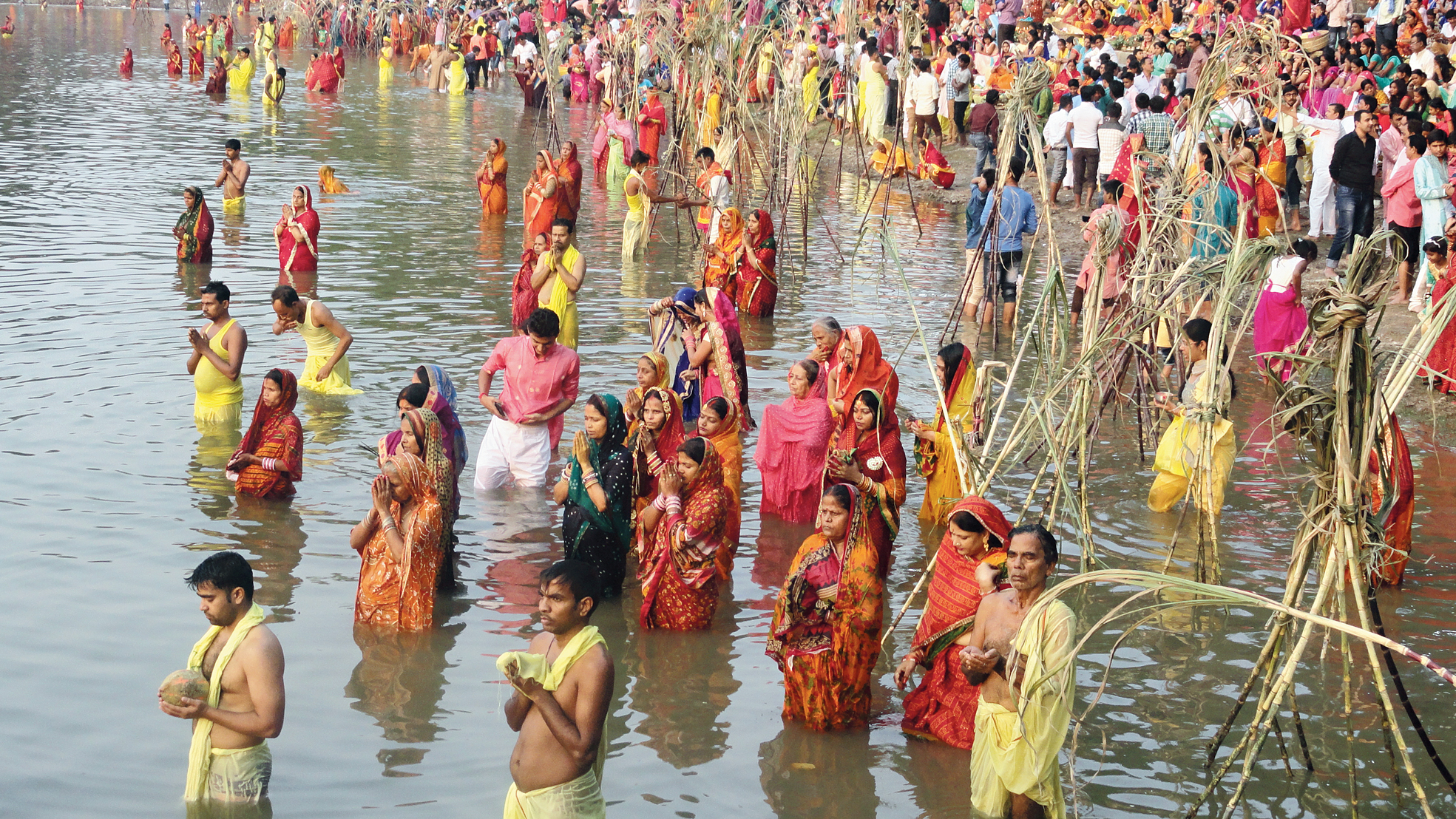Residents of Badar Ghat near Gaighat in Patna City were surprised to see Pachu Gope — whose very name spells terror in the locality — busy cleaning the road leading to the river Ganga ahead of Chhath. In a few days Pachu will be seen distributing fruits and other materials among Chhath devotees.
Like Pachu, several others facing criminal charges are seen cleaning the ghats, narrow lanes and roads leading to the river so that the devotees don’t face any difficulties this time of the year.
Also on the road to facilitate life for devotees during Chhath is Niyaz Khan, a resident of Pathar Ki Masjid who has over a dozen cases against him. He is not only involved in decorating the roads leading to the ghats but also helps devotees from the lower strata of society by providing them things required for Chhath Puja.
Pramod Gupta, a former ward councillor, too, spends lavishly on Chhath devotees. Unable to contest local body elections because of criminal charges against him, he fielded his younger brother Binod Gupta recently.
Chhedi, another person with criminal antecedents, works day and night at Goor Ki Mandi during the four-day Chhath rituals.
It is believed that most of these criminals do not commit crimes during Chhath. “They fear Chhathi Maiyya (goddess) will punish them for criminal offences. For decades, some criminals have worked wholeheartedly and served devotees to wash their sins,” said retired IPS officer Sridhar Mandal.
This is borne out by the crime graph, which dips during the four-day festival. Residents are seen moving about fearlessly on the streets during the time. Even women, considered vulnerable to eve-teasing and chain-snatching, step out of their houses wearing gold ornaments during the festival.
“There is no fear of chain-snatching, common in upcoming Patna localities like Patliputra, Rajendra Nagar, Nageshwar Colony, S.K. Puri, S.K. Nagar, Kidwaipuri, Boring Road and Boring Canal Road,” said Ratna Pandey of Biscomaun Colony in eastern Patna.
On an average, five incidents of chain-snatching are reported from different localities of Patna. But Chhath is when crime takes a break.
“Criminals engage in Puja related work around this time. Crimes like chain-snatching and burglary dip to zero levels during Chhath. But that doesn’t mean routine policing can be relaxed,” said deputy superintendent of police (law and order) Rakesh Kumar.
A senior IPS police officer, who had served in Patna for almost six years, told The Telegraph: “I know a few criminals who donate a hefty sum to the poor among Chhath devotees every year. They distribute soop and daura with coconuts and other fruits every year.”
Another officer, who did not wish to be identified, said inmates of slums in Yarpur and Rajendra Nagar areas, whom the police primarily blames for petty crimes committed in the city, extend financial support to poor devotees in the locality.
Mangal Dom, the leader of the Dom gang — involved in house burglaries, loot and dacoity — arranges vehicles to ferry Chhath devotees from Gardanibagh to the ghats. Some devotees prefer to go to the other side of the river to offer arghya to the setting and the rising sun.
The common refrain is that a person committing crime during this period is punished by Chhathi Maiyya. “Jo galat kaam karta ho use turant saza milti hai (Whoever commits an offence this time of the year, is punished instantly),” said Shanker Sao, who was convicted in a murder case recently.











